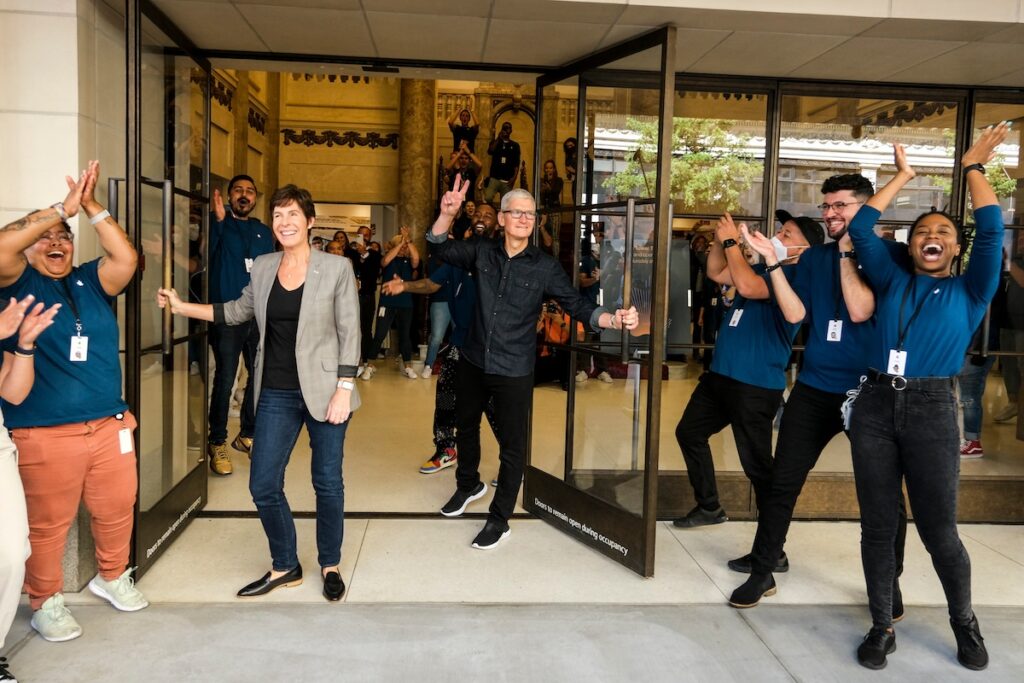I never thought I’d think of a CEO as courageous for simply sharing an ambitions like their desire to “create a culture of belonging.”
But in these strange times, we know that words like “diversity” and “inclusion” and “belonging” have become blasphemous in some circles, especially in big tech.
So Apple CEO Tim Cook daring to utter the idea that the company is still committed to “creating a culture of belonging” stands in sharp contrast to some of his tech and corporate counterparts, including some who are outright ending Diversity Equity and Inclusion (DEI) programs. The fact he’s still willing to use the words als contrast others who are replacing language around DEI and quietly removing content, like Disney, which is removing an entire website it had created aimed at promoting its diverse employees.
In Cook’s case, his push to stay the course on Apple’s “belonging” efforts received significant support overnight, as Apple shareholders voted in favour of retaining the company’s DEI programs.
The vote occurred as part of Apple’s annual meeting, and in response to an opportunistic outside proposal.
The proposal, from a conservative think tank, declared that: “DEI poses litigation, reputational and financial risks to companies, and therefore financial risks to their shareholders, and therefore further risks to companies for not abiding by their fiduciary duties.”
But Apple didn’t think so. Nor did its shareholders.
They voted to reject the proposal, marking a small win in pushing back against the new US President administration’s crackdown on diversity initiatives that have seen programs halted across the public sector and many companies bowing to pressure.
This Apple win for DEI advocates follows another recent win from Costco, where the same conservative group’s proposal to end DEI was also rejected.
The vote by Apple shareholders also vindicates a decision by Apple management to stand behind diversity commitments in the face the significant political pressure.
Stefan Padfield, executive director of Free Enterprise, the arm of the conservative think tank issuing proposals to shareholders to reject DEI claims in presentations that, “forced diversity is bad for business.”
“The vibe shift is clear: DEI is out and merit is in,” he has said.
There is no forced diversity at Apple, where two thirds of its workforce are men.
Apple has never had quotas or even targets, Cook noted during the presentation. And while he did concede that the tech giant may need to make some changes to comply with an evolving legal landscape, he added: “We’ll continue to work together to create a culture of belonging and we’ll remain committed to the values that have always made us who we are.”
Ultimately, the Apple board recommended shareholders vote against the “unnecessary” request.
Cook attended Trump’s inauguration, along with other tech leaders in January. He is said to have a working relationship with Trump, one that has so far seen the business avoid tariffs on its iPhones, which are made in China.
This week, he announced Apple would be investing US$500 billion in creating 20,000 more jobs over the next five years, a move applauded by Trump.
Cook, along with Apple shareholders, are likely well aware that effectively and efficiently hiring thousands of employees requires tapping into the full potential of the talent pool.
And programs that put a focus on inclusion and belonging can be powerful in making that happen.
While Apple may need to make some changes, it won’t be jumping on the anti-diversity bandwagon as fast as others — Meta, Walmart, Boeing, Google, Coca-Cola and Accenture among them.



